What most people get wrong about science
Letting data and evidence, not fears or ideology, guide you is harder than you’d imagine.
Image credit: European XFEL, via http://www.xfel.eu/research/benefits/.
“Enlighten the people generally, and tyranny and oppressions of body and mind will vanish like evil spirits at the dawn of day.” –Thomas Jefferson
Imagine the world not as it actually is right now, but as you’d most like it to be. Imagine a world where all of your hopes and dreams of ridding the world of evils could actually come to fruition, simply at the snap of your fingers.
What is it that would be missing from this world?

War and contention? Political strife? Probably; there are very few among us who think of those things as an objective good in this world.

Hunger? Poverty? Thirst and drought? No doubt, the world would be better off without those things, and if we all enjoyed a freedom from the basic hardships of reality.
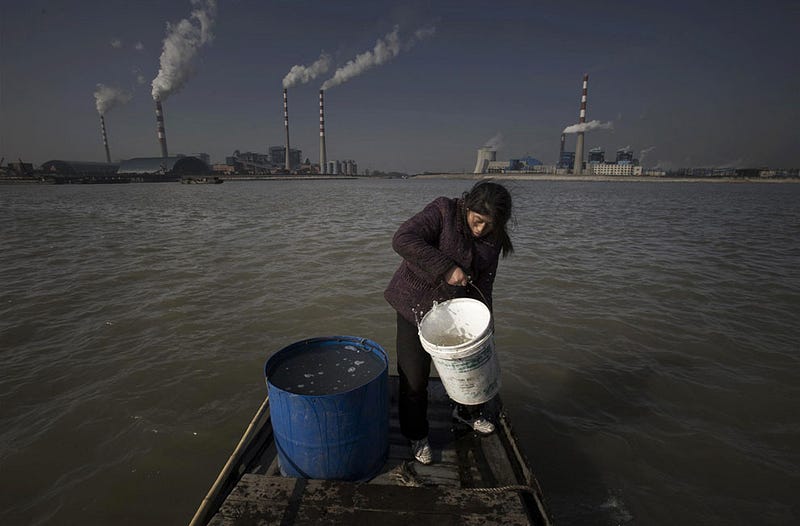
Pollution? Poisoning? Surely there are very few among us who actually think of it as in any way a positive thing to have these maladies in the world.

And finally, disease, illness and the ravages of our bodies (and minds) slowly self-destructing under the stresses of our continued existence.
We’d all like to live in a world that’s free of these things: freedom from violence, freedom from hunger, thirst, lack of shelter and basic necessities, the freedom of a pristine, healthy environment including clean air, clear water, and nourishing foods, and freedom from the inevitable breakdowns and suffering that diseases cause in this world.
At some level, when we look back at what existence was like tens of thousands of years ago and compare it to today, we know where the greatest advancements on these fronts have come from.

The largest breakthroughs humanity has made towards solving these problems over the past few thousand years — even though it might not seem like it at times — has come through scientific and technological advancement.
“WHAT?!,” I can hear many of you protesting already. “Has anything caused more war, more strife, more pollution or poisoning ever than our so-called scientific and technological advancement?”
And you’ll point towards grievous crimes against humanity.
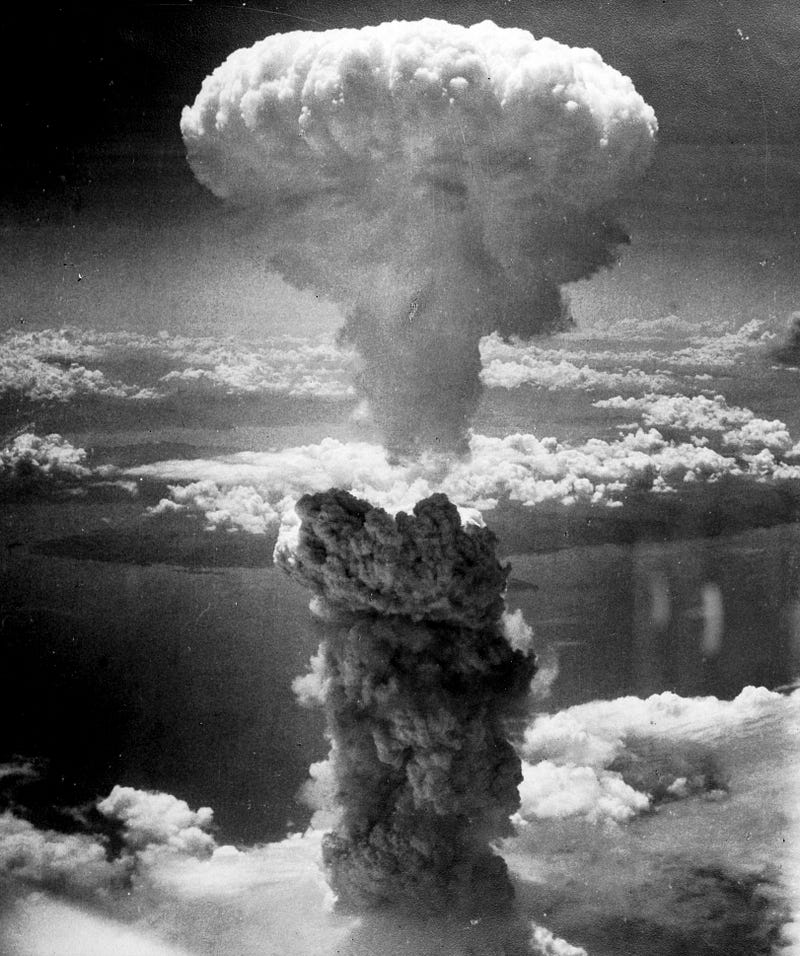
Nuclear war, for one, which resulted in the death of more human beings all at once — wiping out an entire city in a single stroke — than any other disaster (natural or otherwise) in recorded history.
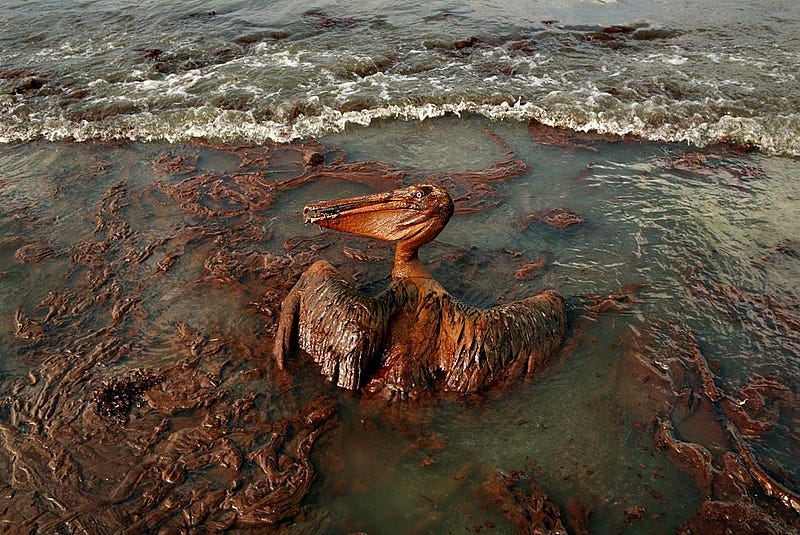
Industrial pollution, oil spills, environmental catastrophes, dirty air, chemicals in the water, the rise in COPD deaths, PCBs, radiation leaks from nuclear power plants, contaminated food from GMOs, the sheer number of horrible diseases we’re supposed to be vaccinated against, the untold side effects of said vaccines, and the list goes on. What more can you ask for?

As it turns out, though, although some of these are certainly extraordinarily bad, we can’t simply objectively, unequivocally state these things are bad for humanity unless we also compare them with what humanity would have instead without them. In other words, it’s not merely enough to state that something is bad, you have to quantify just how bad it is, and really scrutinize whether it’s actually bad at all.
And to do that, you need science.
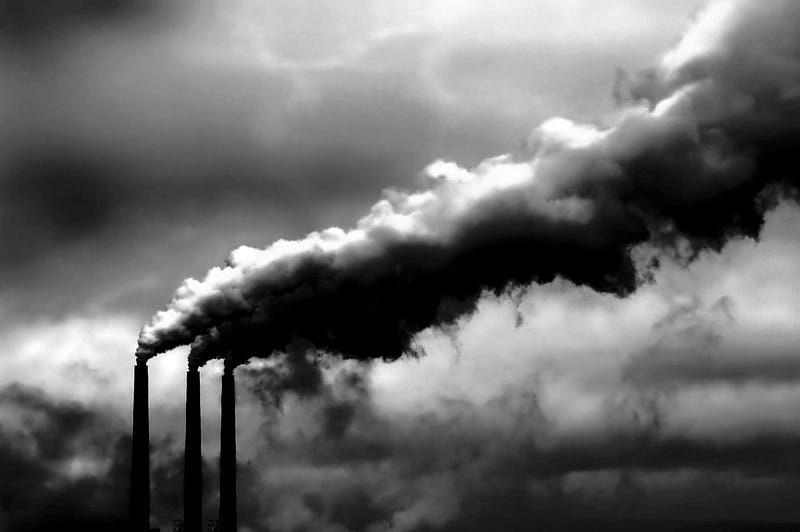
Sure, industrial pollution is bad, but how bad is it? How many premature deaths does it cause? What detrimental or deleterious effects does it have on people’s quality of life? What illnesses is it responsible for? And how do we weigh that against both the benefits to society that industry provides and the cost it would take to eliminate or drastically reduce that pollution?
Some of the things that we’re eager to blame on industrial pollution — like COPD deaths — are actually caused, worldwide, by smoking and by burning wood for heat, not by industrial pollution. I’m by no means saying “pollution is good,” but rather that, if you have any interest in being scientifically-minded, it’s your responsibility to prove the harm done by the thing you’re accusing of being harmful; it’s not the responsibility of the accused to exonerate itself.
And, more specifically, it’s definitely not the responsibility of the accused “evil” to exonerate itself when the evidence that it causes harm is bogus, fraudulent or came about due to scientific misconduct.
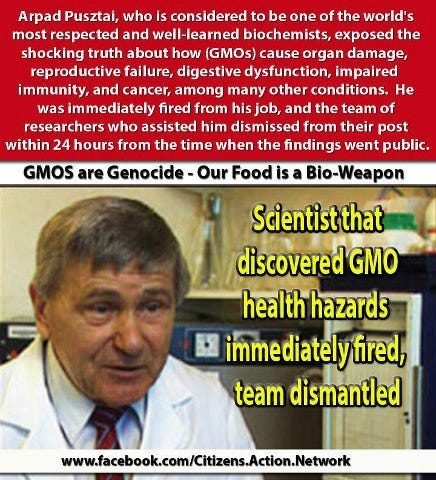
“Information” like this is easy to find, but is it true? Even a cursory look says that it is not. In fact, GMOs, one of the most vilified techniques out there, has a better record of food safety than conventional breeding techniques, and has the potential to save millions from hunger and malnutrition.
But those of you who are ideologically opposed to GMOs will not have your opinion swayed by science, no matter how much of it is presented to you.
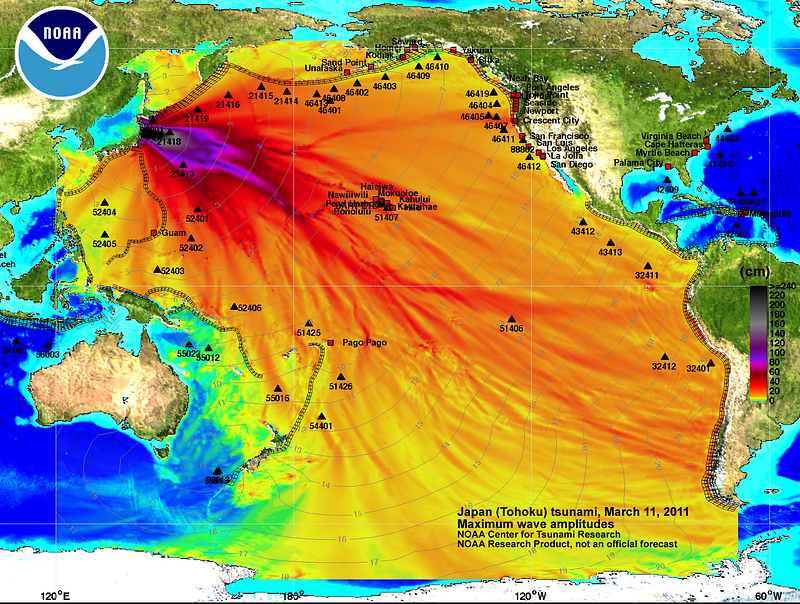
This image often circulates along with captions that talk about the disastrous radiation leak from Fukushima. Yet this map is not about radiation at all, but rather about the maximum water wave amplitude due to the earthquake/tsunami that devastated Japan. Fukushima is a dangerous situation, and is often cited as a cautionary tale against nuclear power. Yet the number of deaths due to the earthquake/tsunami in Japan exceeds 15,000, and the number of deaths due to radiation is still zero, although there are a few thousand with radiation-related (and almost always non-fatal) thyroid cancer.
Compare that, however — since we just mentioned industrial pollution — with 7,500 annual deaths from coal power plants alone.
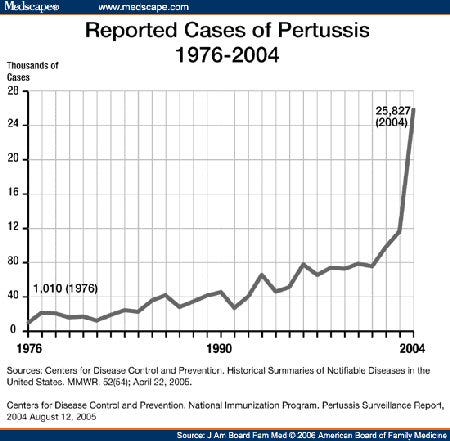
Thousands of people used to die annually before vaccines became widespread and available, with hundreds of thousands falling ill annually in addition to those. By contrast, the number of people — not counting those with severe allergies to the ingredients in vaccines (for which you can and should get tested) — who are harmed by vaccines are consistent with zero, when you compare that to a control group. The study that caused science to waste hundreds of millions of dollars and years studying an effect that wasn’t there was fraudulent, and yet millions of people still oppose vaccinations today. If you’re one of them, reading this paragraph will likely make you angry, but it won’t make you any more likely to become pro-vaccination. Neither will the CDC.

Science isn’t about chasing red herrings, but about testing for safety and efficacy to a reasonable standard, and then moving on to the next advance. If resources were unlimited, we could study everything infinitely, and quantify the benefits and harms done by every single thing in combination with every other thing, and know it all. But the way to move forward as a society and as a world is to ask what the best science says is the quantitative effect — or when that’s not available, what is the quantitative upper limit — and to follow the best recommendation of what’s available. This is true for every scientifically viable issue, from vaccines to fluoridated drinking water to black holes from the LHC to nuclear power to climate change to clean air and more. In fact, if economics ever becomes a hard, quantitative and predictive, understood science in the same fashion, we should begin basing our economic policies on that, regardless of our ideologies.

After all, it’s one of the toughest things in the world: to set your ideology aside. But if we can do it, a better world for all will be our reward. Try and think of this before you share your next piece of “scientific” information that you found on social media, and remember: humans are notoriously bad at assessing risks, but the way to address that is to quantify the benefits and detriments of what you’re looking at. If we can all do it, the dream of a better world will be realized sooner than in any other possible scenario.
Leave your comments at the Starts With A Bang forum on Scienceblogs, unless they’re hateful, in which case you should eat some ice cream and take a nap.





